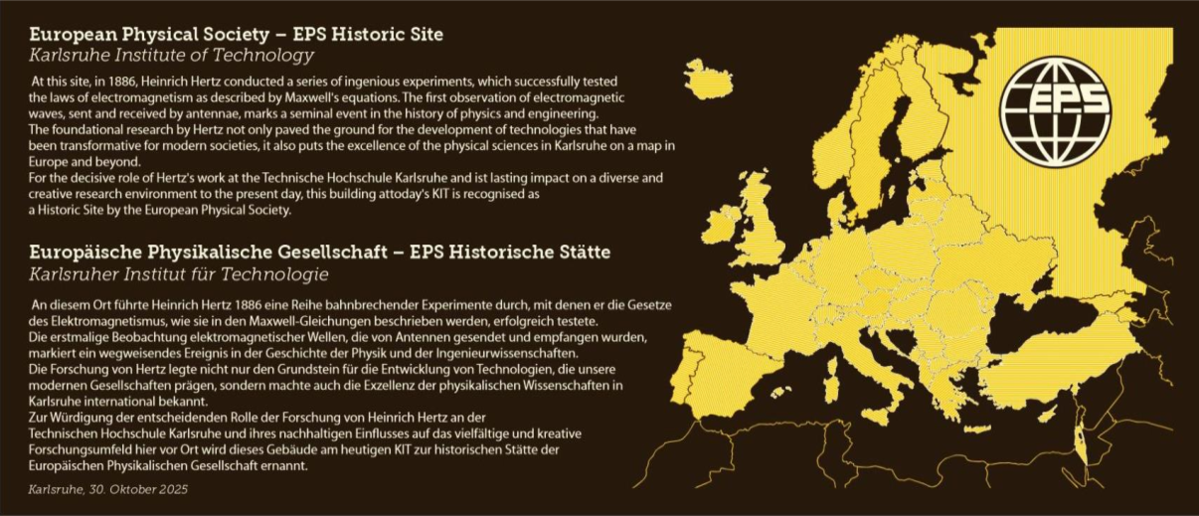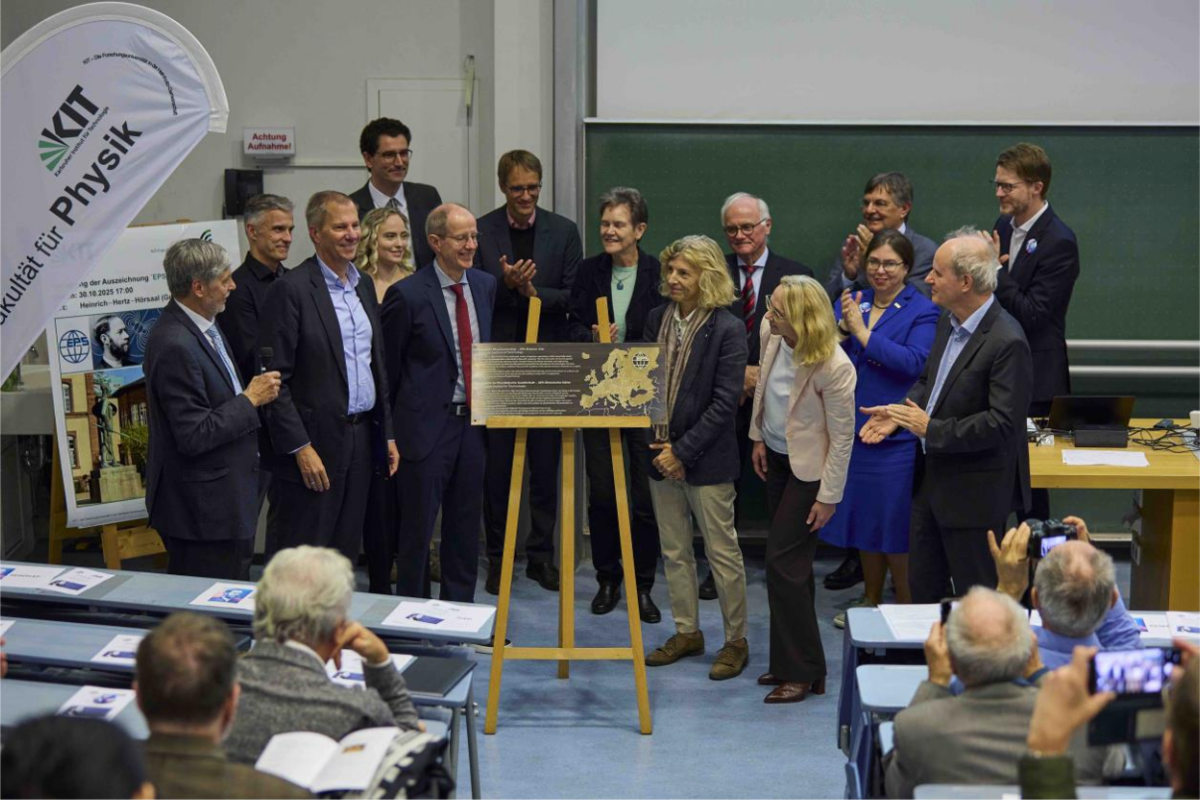Heinrich Hertz Lecture Hall at KIT now is an EPS Historic Site
On October 30 2025, the European Physical Society (EPS) has conferred the award 'EPS Historic Site' on the Heinrich Hertz Lecture Hall at KIT in recognition of the series of ingenious experiments carried out here in 1886 by Heinrich Hertz. His discovery, the first observation of electromagnetic waves sent and received by antennae, successfully tested the laws of electromagnetism as described by Maxwell's equations. It marks a seminal event in the history of physics and engineering that has paved the ground for the development of technologies transformative for modern societies.
Heinrich Hertz held a position as Professor of physics from 1885 to 1889 at the Technical University of Karlsruhe which became KIT in 2009. His experiments were carried out at today’s Heinrich Hertz Lecture Hall, in close proximity to a Memorial dedicated to his legacy. The chosen date of the award as Historical Site corresponds to the 100th anniversary of the unveiling of that Memorial on October 30, 1925. A dedicated colloquium, opened by the Dean of the Department of Physics, Margarete Mühlleitner, followed by a welcome address by KIT's Vice President of Academic Affairs, Oliver Kraft, celebrated the achievements of Hertz with a series of talks. The organisers and convenors of the event, Guido Drexlin and Thomas Müller from ETP, put together a series of talks and key notes, reviewing the fundamental relevance of Heinrich Hertz then and now, including a lively experimental demonstration of his breakthrough experiment by our colleagues Ulrich Husemann and Anke-Susanne Müller. Before, the presidents of the European Physical Society (EPS), Mairi Sakellariadou, and of the German Physical Society (DPG), Klaus Richter, together with KIT Division V head, Marc Weber, gave statements on the importance and implications of the research of Heinrich Hertz. Two historical view talks followed by Johannes-Geert Hagmann, Deutsches Museum, and by Franz Nestmann, President of the Heinrich-Hertz-Gesellschaft.
The highlight of the Colloquium was marked by the unveiling of the commemorative plaque in the presence of all actors in this event. Following the official declaration by the EPS President, KIT-Vice President Kraft emphasised that 'The Discovery of electromagnetic waves by Heinrich Hertz has been fundamental for wireless communication. Many of today's technologies such as television, cell phone communication, or WLAN would not be conceivable without this discovery. KIT takes pride in receiving the EPS Historic Site Award today.
Two key note talks on the future outlook in Physics by our colleagues David Hunger (PHI) and Markus Klute (ETP) concluded this event.
The programme of the whole event is available at its respective indico page.
Following the festive ceremony, the commemorative plaque will be placed in due time at the Ehrenhof of KIT next to the Memorial of Heinrich Hertz as inspiration for future generations of scientists. (by G.D., Th.M.)



